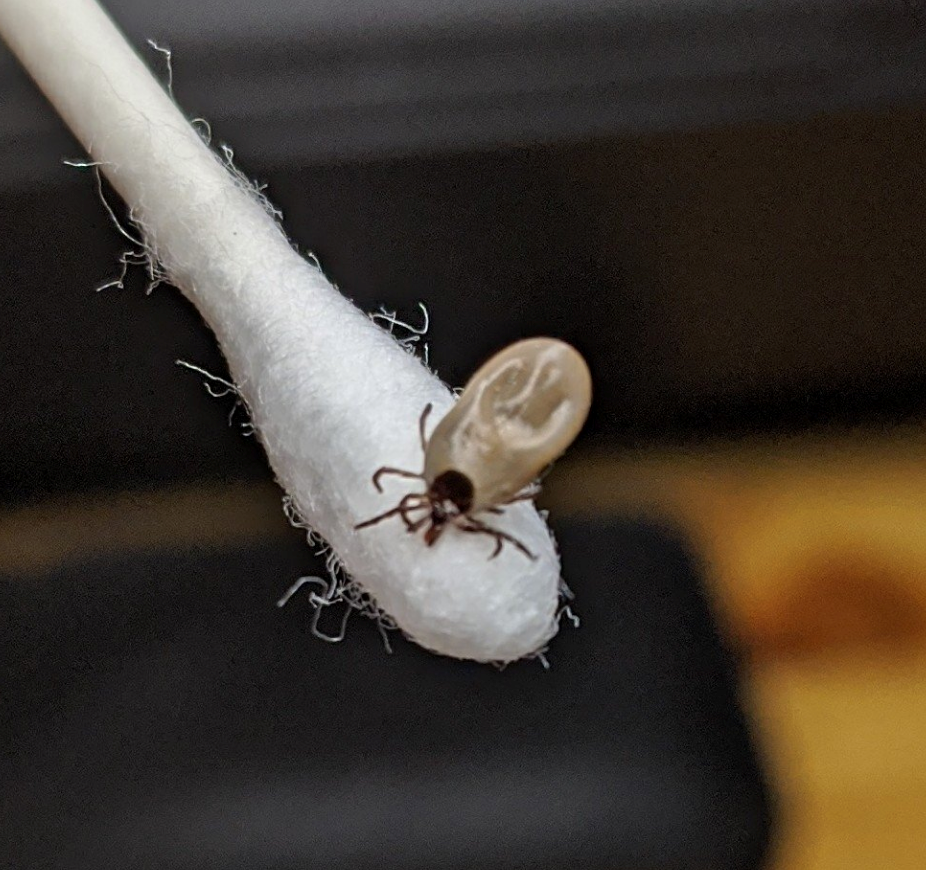It’s tick season once again, but this time with less fear and anxiety for those who come across the pesky creatures.
eTick, a free public app and webpage created by Bishop’s University in partnership with the University of Guelph, allows users to submit an image of a tick which is then identified by trained personnel.
Within one business day, a user who submits an image of a tick through the app will receive information about the tick’s species, the potential risks associated with that particular species and information about resources available to them in their province.
“It's a very rapid answer but it's also a very specific answer,” said Jade Savage, entomologist from Bishop's University who launched the eTick project.
Dave Beaton, the City of Guelph’s program manager for forestry and sustainable landscapes, said south Wellington County is now an ‘at-risk’ area for the black-legged deer ticks known to transmit Lyme disease and with climate change, the location range of the tick is moving toward Guelph.
“Wellington-Dufferin-Guelph Public Health does research in parks in the south end of Guelph monitoring for blacklegged ticks. To date, Guelph is just outside the boundary, however, because ticks can be transported around by animals, including birds, you could encounter one almost anywhere in the province,” said Beaton.
Once a tick is identified, a dot appears on the tick map to mark its location. This allows users to explore the date and time different ticks have been identified in their area.
“So basically it allows people to know if there are any hot spots for ticks around areas where they live or places that they visit,” said Savage.
She said people often assume that all ticks are equally problematic to humans which is not the case because there are many species of ticks who don't carry pathogens.
“For people to know that the tick they found on their kid in the morning is not transmitting any pathogen in Ontario is a great relief. This is a very quick answer to an issue that causes a lot of anxiety,” said Savage.
Savage began this project in 2014 in Quebec. In 2017, she applied for a grant with the Infectious Disease and Climate Change Fund to expand the project beyond her province, and that’s when Claire Jardine and Katie Clow from the Ontario Veterinary College joined the project to kick off the eTick app platform in Ontario in 2019.
“With them we basically made the platform better and they’ve been a part of that since we got the funds,” said Savage.
“Ontario and New Brunswick were the first provinces beyond Quebec, today in 2021, we will be covering pretty much all of the provinces for this year.”
Savage said in her discipline, experts often create tools for other experts, but in this case she felt she could take something out of the sphere of academia and transform it to benefit the greater public.
She said a few years ago, it would take weeks for people to get any information on a tick they found — a process she found extremely problematic in a digital age.
“Citizen science is increasingly popular. We have the means to do that so why not develop the tools?” said Savage about giving the platform a shot.
“It worked beautifully.”
Beaton said reports that citizens provide to eTick will be critical to help the city understand if the back legged tick is extending its range into Guelph.
“Having residents be tick aware helps keep residents safe by encouraging tick checks that can detect ticks quickly and avoid the potential of Lyme disease,” said Beaton.
“I have used the app twice personally and was able to get peace of mind that the tick was not a blacklegged tick.”
